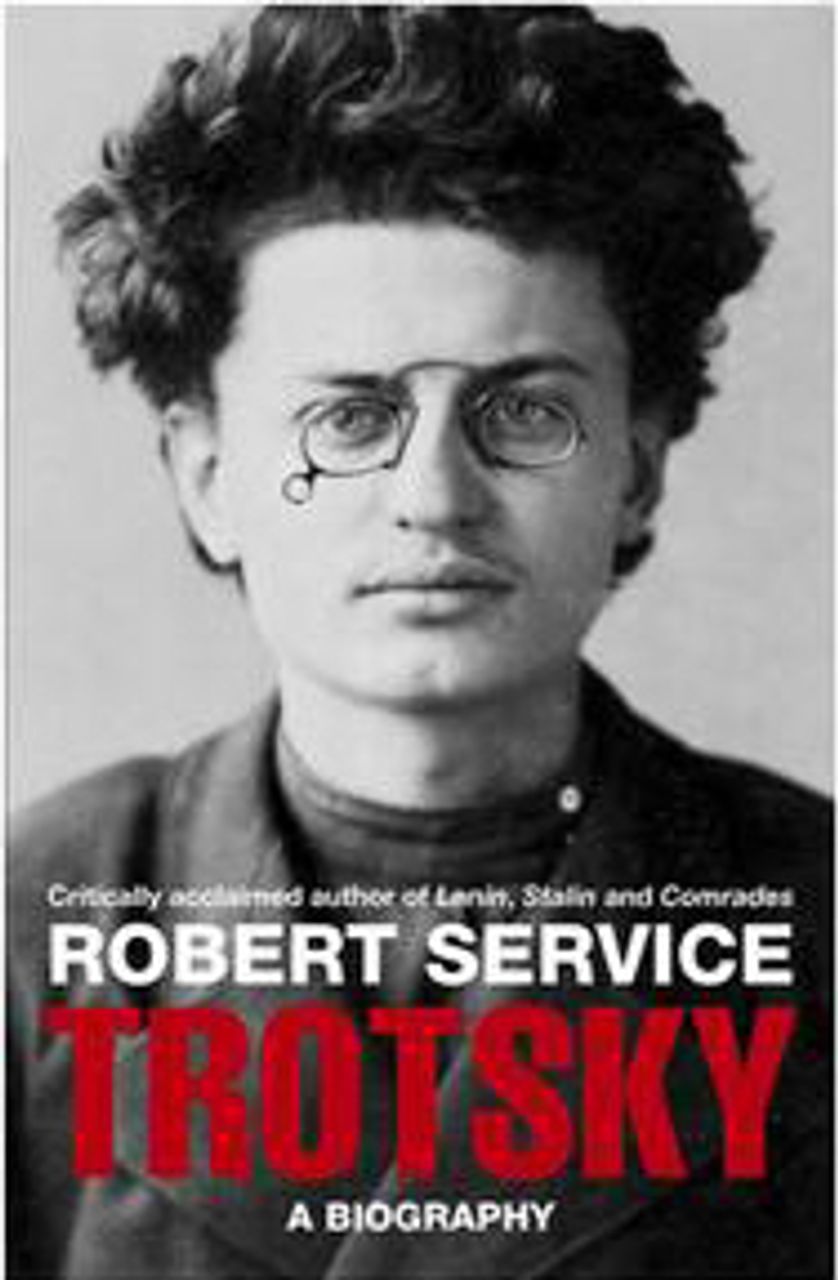A Review of Robert Service’s Trotsky: A Biography
By David North
Trotsky: A Biography
Robert Service
Harvard University Press
Cambridge, Massachusetts, 2009

The Specter of Leon Trotsky
In 1955 James Burnham, the intellectual godfather of modern American neo-conservatism, reviewed The Prophet Armed, the first volume of Isaac Deutscher’s monumental biography of Leon [Lev Davidovich] Trotsky. Fifteen years had passed since Burnham had resigned from the Fourth International at the climax of a political struggle in which he had crossed polemical swords with Leon Trotsky. It had been a difficult experience for Burnham, who felt somewhat overmatched in this political and literary contest. “I must stop awhile in wonder,” Burnham had written in a document addressed to Trotsky, “at the technical perfection of the verbal structure you have created, the dynamic sweep of your rhetoric, the burning expression of your unconquerable devotion to the socialist ideal, the sudden, witty, flashing metaphors that sparkle through your pages.” (1)
In the aftermath of his repudiation of socialism, Burnham moved rapidly to the extreme right (as Trotsky had predicted). By the mid-1950s he viewed Trotsky’s life and work through the prism of his own ideological commitment to a global struggle against Marxism. Deutscher’s work filled Burnham with alarm. The problem was not literary in character. Burnham readily acknowledged the author’s masterful reconstruction of Trotsky’s revolutionary persona.
“Mr. Deutscher has cast his story of Trotsky in the Greek mould, and with sufficient justification,” Burnham wrote. “His Trotsky is a protagonist of the most dazzling brilliance, who rises in 1905, 1917 and in the Civil War to successive heights where he fuses with History and becomes her voice.” Burnham allowed that the author had succeeded in conveying to his readers Trotsky’s extraordinary qualities: “the flaming oratory, which many who heard him believe to have been the greatest of our century; the linguistic facility; the witty and vibrant prose; the quickness with which Trotsky mastered every new subject; the breadth of interest, so rare among the dedicated revolutionaries.”
Burnham noted that Deutscher’s portrait of Trotsky was not one-sided; that he “conscientiously displays, also, Trotsky’s weaknesses…” But despite the many literary virtues of the biography, Burnham denounced it as an “intellectual disaster.” Burnham’s reason for his condemnation was that “Mr. Deutscher writes from a point of view that accepts and legitimizes the Bolshevik revolution.” The biography was “organically warped” and unacceptable. “Not all the scholarly references from all the libraries are enough to wash out the Bolshevik stain.”
Burnham confessed his horror that Deutscher had received “all the courtesies of our leading research institutions, the aid of our foundations, the pages of our magazines, publication and promotion by the great Anglo-Saxon Oxford Press.” Did the establishment not recognize the danger in allowing, and even encouraging, the details of Trotsky’s heroic life and revolutionary ideas to reach the broader public, and especially the youth?
Burnham concluded his review with a cry of despair: “The minds of many of our university students and opinion-makers are being deeply formed, on the supremely important issues with which he [Deutscher] deals, by his ideas. It is surely one more among the many indications of the suicidal mania of the western world.” (2) The conclusion that implicitly flowed from this review was that Deutscher’s book and others like it, which portrayed the October Revolution and its leaders sympathetically, should not be published.
World Socialist Web Site for more
